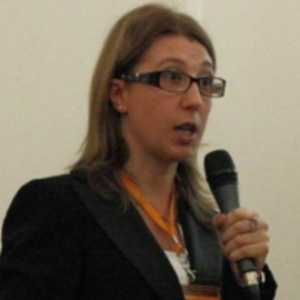Title : Heterogeneous Fenton process for enhanced liquid waste treatment
Abstract:
Innovations in water technology are fundamental to finding solutions to the nowadays challenges: climate change, resource shortages, emerging contaminant, urbanization and sustainable development. Nowadays the use of conventional wastewater processes is becoming increasingly challenging mainly due to the presence of biorecalcitrant organic matter. Liquid waste can be produced by all sectors of society including wastewater from industrial processes and they can be divided into subgroups depending on their nature and toxicological risk. Therefore, an emerging technology is needed to deal with these highly concentrated and toxic non-biodegradable pollutants. Advanced oxidation processes (AOP) such as Fenton, Fenton-like and hybrid processes have been successfully employed for the treatment of different types of wastewaters. These processes typically rely on the generation of highly reactive hydroxyl radicals, which in turn attack the organics and degrade them. The conventional Fenton process generates large volumes of sludge that needs to be disposed, creating a serious environmental and economic problem. The heterogeneous Fenton process is the most viable solution for the treatment of wastewaters because it produces lower amount of sludge, the catalysts are recyclable and these features make this process feasible in terms of scalability and economics. However, there is a growing need for the development of new active catalysts to be employed in Fenton-like process, with extended life, improved activity and selectivity.
Here we focused on two different liquid waste, a pharmaceutical pollutant (model solution of ibuprofen) because of its environmental impact on the receiving waterbodies and a landfill leachate which contains refractory organic compounds, characterized as persistent. The conventional biological treatment plants are unable to completely remove these recalcitrant compounds and advanced oxidation processes are required.
Copper-based heterogeneous catalysts have developed for the treatment of liquid wastes using a Fenton like process, as a potential pre-treatment before wastewater treatment line. Copper supported on zirconia (Cu/Zr) exhibited a promising activity with an almost complete degradation of ibuprofen (98%) and 60% of mineralization, while working with the leachate a 67% of abatement of pollutants is obtained. A special attention has been devoted to the toxicity of the treated liquid waste. These catalysts do not produce toxic metabolites which is important when considering the degradation of water pollutants and harmful liquid wastes discharged to Integrated Water Cycle.
In addition, steel scale waste (SSW), a by-products of steel production containing oxides in large quantity has been tested as a heterogeneous Fenton-like catalyst for the treatment of landfill leachate The idea of exploiting a waste (steel waste) to be used it in the treatment of liquid waste is related to the perspective of more sustainable processes within a circular economy. At mild conditions SSW successfully removed about 75% of the recalcitrant organic loading from landfill leachate, resulting a promising material for the treatment of heavily polluted wastewater streams. These findings appear extremely important into a circular economy perspective, because steel scale waste is produced in huge quantities and could be effectively used as a catalyst in a highly polluted liquid waste treatment process.
Summarizing this study highlights the potential of two different catalysts (a home-made and an industrial waste) for the removal of organic compounds from liquid waste via heterogeneous Fenton-like process.


